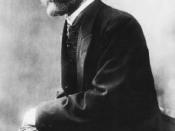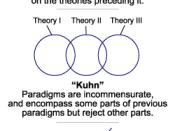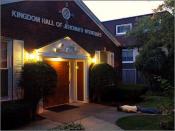During the course of this essay, I will attempt first to criticise science and scientists and show the arrogant assumptions that are made about science. I will then discuss the similarities between arts and sciences in the light of my criticisms, and finally look closely at the many differences between arts and sciences. There are several different criticisms that have been commonly levelled at science and scientists as a whole. I shall begin by attempting to identify these criticisms and identifying the reasoning behind each of them.
The first of these criticisms is that science has been given similar status to a religion. It was commonly thought in the early days of science that science would eventually develop a theory for everything, thereby replacing religion through removing the ambiguous and the incomprehensible parts of life with which religion dealt. In many ways science has replaced religion in the 21st century, as it has become the object of faith and even devotion.
A blind faith has been placed in the unquestionable correctness of science and scientific research. It was Emile Durkheim who first advanced the theory that given enough time, science would replace all traditional religions to be replaced by a formal, unquestionable religion based upon science. It is the arrogance of many scientists that leads us to believe that scientific theories are facts, and can be treated as 'truth' replacing religion by explaining the facts behind the creation and existence of the world. The problem with this belief that science is unquestionable fact and can be treated in a similar way to a religion is twofold. First, scientific theories are advanced through observation and experimentation, these theories can never be proved entirely correct since they are based only on certain observations, as the full facts can never be known, a...


